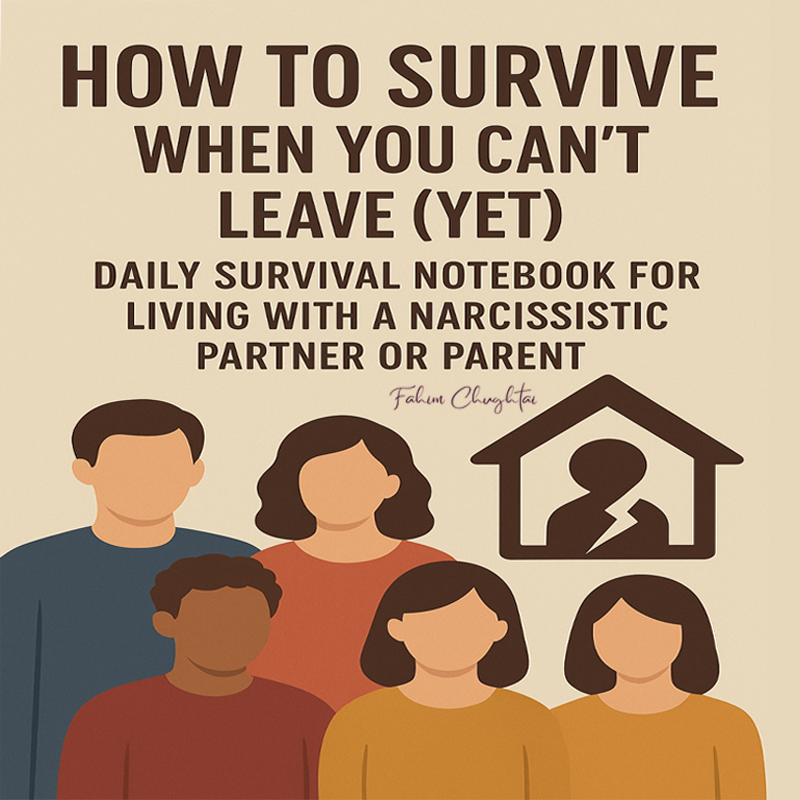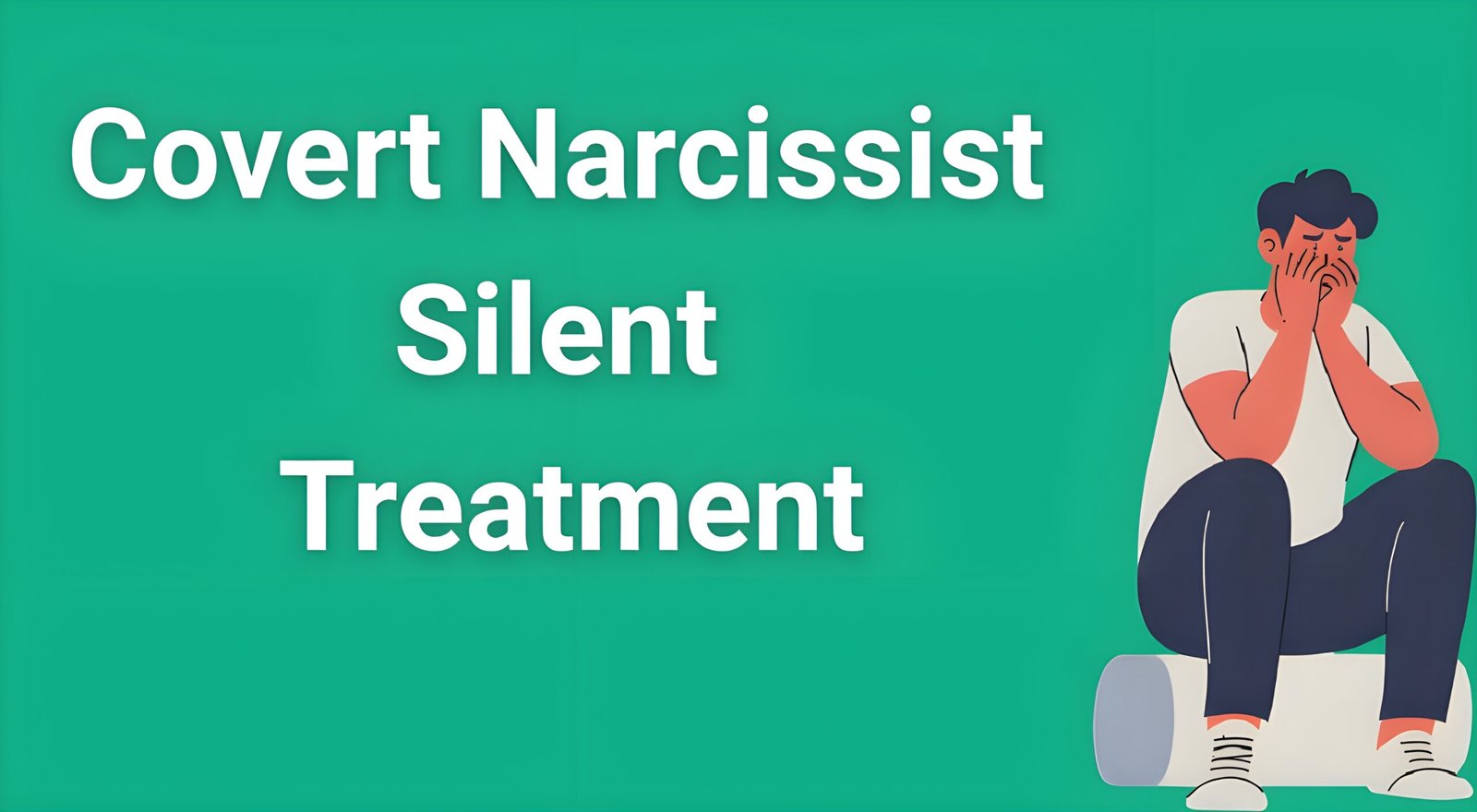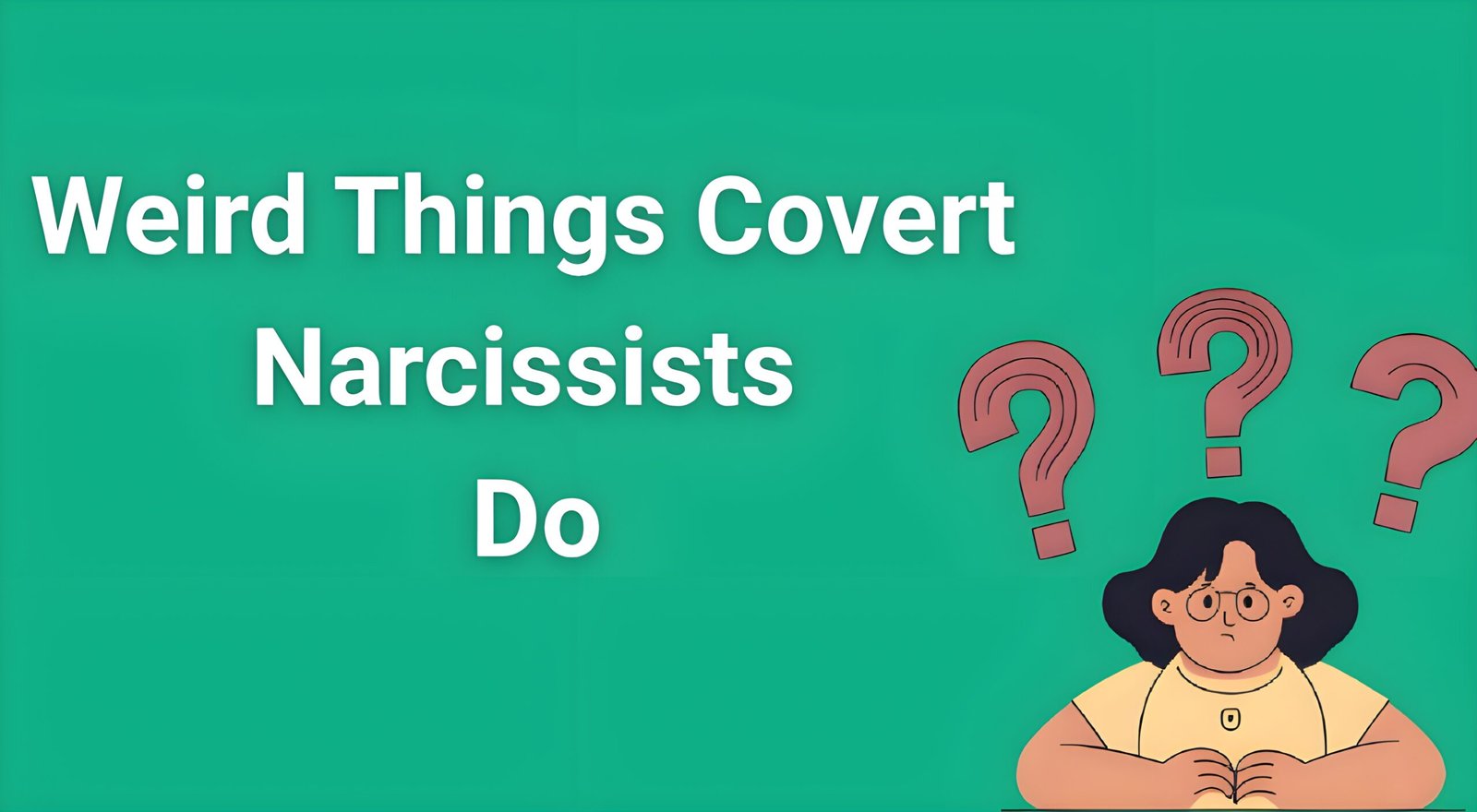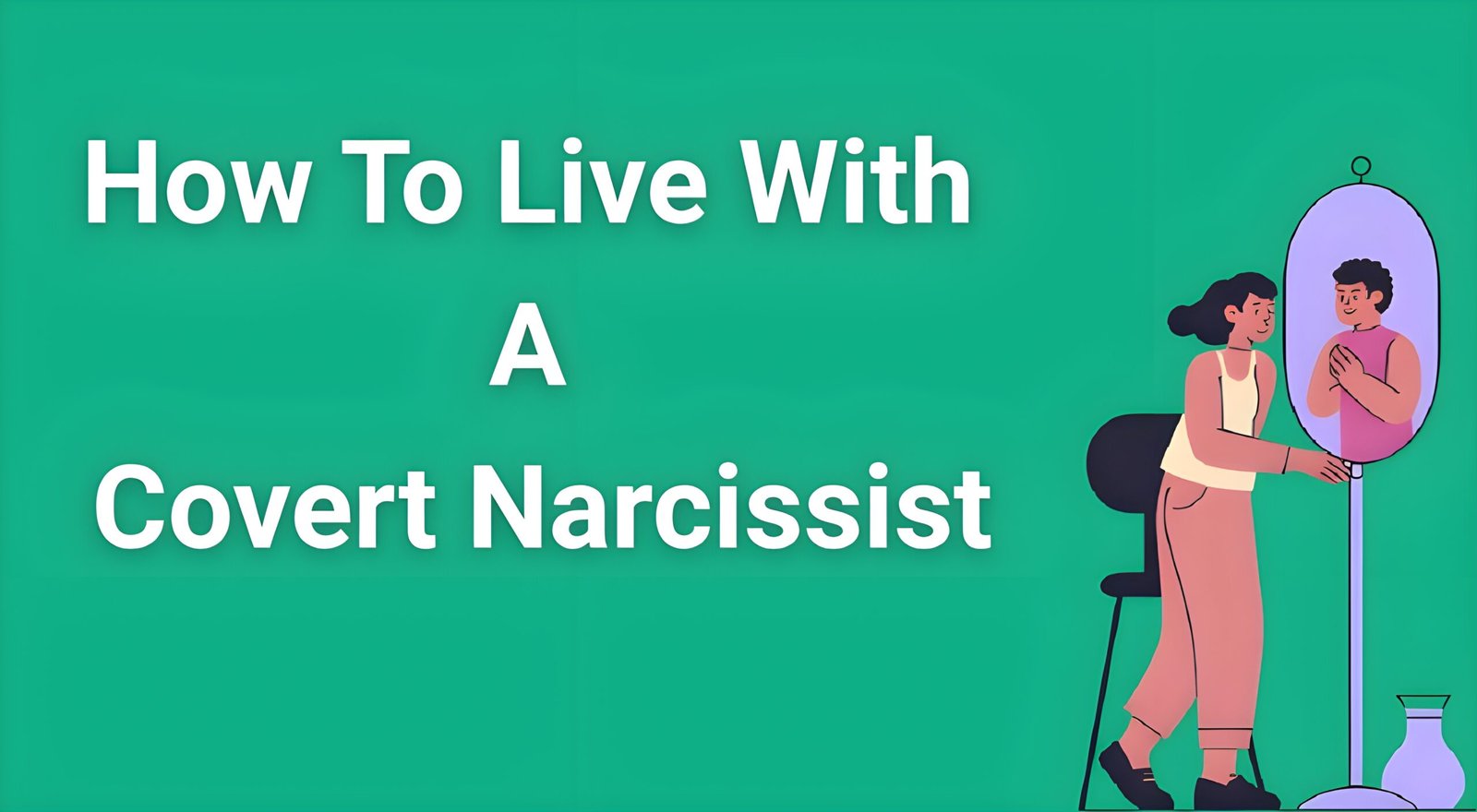The crushing silence feels like a punishment worse than any argument. One moment you’re having a normal conversation, the next you’re met with cold indifference that stretches for days, weeks, or even months. If you’re experiencing covert narcissist silent treatment, you’re not imagining the psychological warfare – you’re living through one of the most calculated forms of emotional abuse.
- What Makes Covert Narcissist Silent Treatment Different
- Why Covert Narcissists Use Silent Treatment
- The Psychological Impact on Victims
- Recognizing the Patterns and Triggers
- Breaking Free: Your Response Strategy
- Professional Help and Support Systems
- Protecting Yourself Moving Forward
- When to Consider Leaving
- Your Path to Freedom Starts Now
- Frequently Asked Questions
Unlike overt narcissists who explode in dramatic outbursts, covert narcissists weaponize silence to control, punish, and break down their targets. This subtle yet devastating tactic leaves victims questioning their sanity while the narcissist maintains their carefully crafted image of being the “good person” in the relationship.
Understanding this manipulation tactic is your first step toward freedom. This comprehensive guide will reveal why covert narcissists use silent treatment, how it affects your mind and body, and most importantly, how to break free from this toxic cycle once and for all.
What Makes Covert Narcissist Silent Treatment Different
The silent treatment from a covert narcissist isn’t just someone needing space after an argument. It’s a deliberately calculated psychological attack designed to maintain power and control while avoiding accountability.
Am I Dealing With a Covert Narcissist — or Just Toxic Behavior?
The Stealth Nature of Covert Narcissistic Abuse
Covert narcissists excel at flying under the radar. While their overt counterparts demand attention through grandiose displays, covert narcissists present themselves as sensitive, misunderstood souls who just happen to withdraw when things get difficult. This makes their silent treatment particularly insidious because it comes wrapped in a package of victimhood.
The covert narcissist’s version of silent treatment often includes subtle expressions of hurt or disappointment that suggest you’ve wounded them deeply. They might sigh heavily, look pained when you enter the room, or engage with others while pointedly ignoring you. This creates plausible deniability – they can always claim they weren’t giving you the silent treatment, they were just “processing” or “needed space.”
How It Differs from Healthy Communication Breaks
Healthy relationships sometimes require cooling-off periods after conflict. The key differences with narcissistic silent treatment include:
Healthy space involves communication about needing time, a general timeframe for reconnection, and eventual resolution of the underlying issue. Covert narcissist silent treatment appears without warning, has no defined endpoint, and focuses on punishment rather than problem-solving.
When someone emotionally mature needs space, they might say, “I need a few hours to think about this, and then let’s talk tonight.” A covert narcissist simply vanishes emotionally, leaving you to wonder what you did wrong and how to fix it.
Why Covert Narcissists Use Silent Treatment
Understanding the psychological motivations behind this behavior helps you recognize that it’s never about what you actually did – it’s about their need to maintain control and avoid facing their own emotional inadequacies.
Control Without Confrontation
The silent treatment allows covert narcissists to punish and control their targets without having to engage in direct conflict that might expose their true nature. It’s the perfect weapon for someone who needs to maintain their image as a reasonable, non-aggressive person while still dominating the relationship.
This tactic puts all the power in their hands. They decide when the silence begins, how long it lasts, and what conditions must be met for communication to resume. Meanwhile, you’re left powerless, walking on eggshells and desperately trying to figure out how to restore harmony.
Avoidance of Accountability
When confronted with their behavior, covert narcissists often retreat into silent treatment rather than taking responsibility. This serves multiple purposes: it deflects attention from their actions, positions them as the victim of your “aggressive” confrontation, and trains you to avoid holding them accountable in the future.
The message becomes clear: challenge me, and you’ll be punished with isolation. Over time, most people learn to suppress their needs and concerns rather than risk triggering another episode of emotional abandonment.
Narcissistic Supply Through Your Distress
Perhaps most disturbing is that your pain during the silent treatment actually feeds their ego. The frantic texts, desperate apologies, and anxious attempts to reconnect all confirm their importance in your life. Even your suffering validates their power and control.
This explains why silent treatment often continues even when you’re clearly distressed. Your emotional turmoil isn’t a signal for them to reconnect – it’s confirmation that their tactic is working exactly as intended.
The Psychological Impact on Victims
The effects of repeated covert narcissist silent treatment extend far beyond temporary hurt feelings. This form of emotional abuse creates lasting psychological wounds that can take months or years to heal.
Trauma Bonding Through Intermittent Reinforcement
The cycle of punishment and reconciliation creates what psychologists call a trauma bond. When the silent treatment finally ends, the relief you feel is so intense that it actually strengthens your attachment to the person who caused the pain in the first place.
This is similar to how addiction works in the brain. The unpredictable cycle of emotional withdrawal and return creates a biochemical addiction stronger than many substances. Your brain begins to crave the “high” of reconnection, making it increasingly difficult to leave the relationship despite the obvious toxicity.
Understanding trauma bonds is crucial for anyone trying to break free from narcissistic abuse. It’s not weakness or stupidity that keeps you attached – it’s a neurological response to intermittent reinforcement that humans are biologically wired to experience.
Erosion of Self-Worth and Identity
Repeated silent treatment gradually convinces you that your thoughts, feelings, and needs are unworthy of acknowledgment. Over time, you begin to question your own perceptions and minimize your emotional responses to avoid triggering another episode.
Many survivors describe feeling like they disappeared during the relationship, losing touch with their own preferences, opinions, and even their sense of humor. The constant threat of emotional abandonment teaches you to prioritize the narcissist’s comfort over your own authentic self-expression.
Physical and Mental Health Consequences
The stress of living with unpredictable silent treatment takes a measurable toll on your body and mind. Common symptoms include:
Chronic anxiety and hypervigilance as you constantly monitor the narcissist’s mood for signs of impending withdrawal. Sleep disturbances from racing thoughts about what you might have done wrong and how to fix it. Depression and hopelessness as the cycle repeats without resolution.
Physical symptoms often include headaches, digestive issues, and a weakened immune system from chronic stress. Your body remains in a state of fight-or-flight, expecting the next emotional attack at any moment.
Recognizing the Patterns and Triggers
Covert narcissist silent treatment follows predictable patterns once you know what to look for. Recognizing these patterns is essential for protecting yourself and making informed decisions about the relationship.
Common Triggers for Silent Treatment
The silent treatment often follows seemingly minor incidents that threaten the narcissist’s fragile ego or sense of control:
Boundary setting of any kind frequently triggers withdrawal. Whether you decline a request, express a preference, or assert your needs, the covert narcissist may interpret this as rejection or defiance worthy of punishment.
Success or positive attention you receive can also trigger silent treatment. If you receive recognition at work, compliments from others, or achieve something meaningful, the narcissist may withdraw to punish you for outshining them or not making them the center of attention.
Questioning their behavior almost always results in silent treatment. Asking for explanations, expressing hurt about their actions, or requesting basic accountability is often met with immediate emotional withdrawal.
The Escalation Cycle
Silent treatment episodes typically follow a predictable escalation pattern:
The buildup phase involves increasing tension and subtle signs of the narcissist’s displeasure. You might notice them becoming quieter, less responsive, or making passive-aggressive comments.
The explosion phase is when full silent treatment begins, often triggered by something seemingly insignificant. The sudden withdrawal feels shocking and disproportionate to whatever supposedly caused it.
The punishment phase involves sustained silence designed to break down your resistance and force compliance. This can last anywhere from hours to months, depending on the narcissist’s assessment of how much pressure they need to apply.
The reconciliation phase occurs when the narcissist decides they’ve achieved their goal or need something from you. They may return as if nothing happened or offer a minimal explanation that places blame on you for “making them” withdraw.
Breaking Free: Your Response Strategy
The key to breaking free from covert narcissist silent treatment lies in refusing to play the game according to their rules. This requires a fundamental shift in how you respond to their manipulation tactics.
Stop Chasing and Pursuing
The most important change you can make is to stop pursuing them during silent treatment episodes. This means no desperate texts, no attempts to guess what’s wrong, and no elaborate apologies for things you didn’t do.
When you chase someone who’s giving you the silent treatment, you’re essentially rewarding their behavior and teaching them that this tactic works. Breaking this pattern requires incredible self-control, especially when you’re trauma-bonded, but it’s essential for your recovery.
Instead of pursuing, focus on your own life and activities. This isn’t about playing games or trying to make them jealous – it’s about reclaiming your own power and refusing to be controlled by someone else’s emotional withholding.
Establish and Communicate Clear Boundaries
Set clear expectations about acceptable communication in your relationships. You might say something like: “I understand people sometimes need space, but complete silence without explanation isn’t acceptable to me. If you need time to process something, please communicate that clearly.”
The key is stating your boundary without threatening consequences you’re not prepared to enforce. Covert narcissists will often test your boundaries immediately, so be prepared to follow through with whatever limits you set.
Use the Gray Rock Method
When dealing with someone who uses silent treatment as manipulation, the Gray Rock method can be highly effective. This involves becoming as boring and unresponsive as possible to reduce the narcissistic supply they gain from your emotional reactions.
During silent treatment episodes, neither pursue nor appear distressed. Continue with your normal activities, maintain your emotional equilibrium, and avoid giving them the dramatic response they’re seeking. This removes the reward that makes silent treatment effective as a control tactic.
Professional Help and Support Systems
Breaking free from the psychological impact of covert narcissist silent treatment often requires professional support and a strong network of understanding people.
Finding Specialized Therapy
Not all therapists understand narcissistic abuse dynamics. Look for professionals who specifically work with narcissistic abuse survivors and understand concepts like trauma bonding, intermittent reinforcement, and the unique challenges of covert narcissistic relationships.
For many survivors, getting expert analysis of their specific situation provides the clarity needed to break free from confusion and self-doubt. Understanding exactly what manipulation tactics are being used against you can be the breakthrough moment that changes everything.
Building Your Support Network
Isolation increases vulnerability to narcissistic manipulation. Building connections with friends, family, support groups, or online communities provides emotional sustenance and reality-testing during difficult periods.
Consider joining support groups specifically for narcissistic abuse survivors. These groups provide validation from people who truly understand what you’re experiencing and can offer practical advice from their own recovery journeys.
Working Through Trauma Bonds
The biochemical addiction created by trauma bonding requires specific attention in your healing process. Many survivors find that understanding the neurological basis of their attachment helps reduce shame and self-blame about why leaving feels so difficult.
Specialized workbooks and recovery programs designed specifically for trauma bond recovery can provide the daily structure and support needed to rewire your brain’s response patterns. These resources often include specific techniques for managing withdrawal symptoms, reality-testing exercises, and strategies for maintaining no-contact when necessary.
Protecting Yourself Moving Forward
Recovery from covert narcissist silent treatment involves not just healing from past abuse, but developing the tools to protect yourself from future manipulation.
Learning to Trust Your Instincts Again
Narcissistic abuse often leaves survivors doubting their own perceptions and instincts. Part of recovery involves learning to trust your internal warning system again and honoring your emotional responses rather than dismissing them.
Practice paying attention to how you feel in different relationships and situations. If someone makes you feel constantly anxious, confused, or like you’re walking on eggshells, trust that your nervous system is picking up on genuine danger signals.
Recognizing Red Flags Early
Once you understand the patterns of covert narcissistic abuse, you’ll be better equipped to recognize similar dynamics in future relationships. Early warning signs include love-bombing followed by gradual withdrawal, passive-aggressive communication, victim playing, and attempts to isolate you from support systems.
Pay attention to how potential partners handle conflict, boundaries, and accountability. Healthy people can discuss problems directly and take responsibility for their actions. Anyone who consistently uses silent treatment, guilt-tripping, or emotional manipulation should be considered a high risk for future abuse.
Still Living With Them? You’re Not Helpless.

Creating a Life Beyond the Narcissist
True freedom involves building a life so fulfilling that narcissistic crumbs of attention lose their appeal. This means reconnecting with your own interests, goals, and relationships that existed before the narcissistic relationship consumed your energy.
Focus on activities that bring you joy, people who treat you with consistent respect, and goals that matter to you personally. The stronger your sense of self and the richer your independent life, the less vulnerable you become to future manipulation.
When to Consider Leaving
Sometimes the healthiest response to chronic covert narcissist silent treatment is to end the relationship entirely. This decision becomes necessary when the pattern continues despite your best efforts to address it.
You’ve Seen the Patterns. Now Break the Bond.
Signs It’s Time to Go
Consider leaving when silent treatment becomes a regular occurrence that significantly impacts your mental health and daily functioning. If you find yourself constantly walking on eggshells, losing sleep over their moods, or changing fundamental aspects of yourself to avoid triggering their withdrawal, the relationship has become toxic beyond repair.
Other indicators include escalating patterns of abuse, involvement of children in the manipulation, or clear signs that the narcissist has no intention of changing their behavior despite your attempts to address it.
Creating Your Exit Strategy
Leaving a relationship with a covert narcissist requires careful planning, especially if you’re trauma-bonded or share significant life entanglements. Start by building your support network, securing your finances, and creating a safe living situation if necessary.
Many survivors benefit from working with professionals who understand the specific challenges of leaving narcissistic relationships. This might include therapists, legal advisors, and domestic violence counselors who can help you navigate the process safely.
For those who cannot leave immediately due to children, finances, or other constraints, learning to survive while you create your exit plan becomes crucial. There are specific strategies for protecting your mental health while you build the resources needed for eventual freedom.
Your Path to Freedom Starts Now
Breaking free from covert narcissist silent treatment requires courage, support, and the right tools. Remember that healing is possible, regardless of how long you’ve endured this form of abuse or how confused you feel right now.
Your first step toward freedom is recognizing that the silent treatment is not about anything you did wrong – it’s a deliberate manipulation tactic designed to control you. This awareness alone begins to break the spell that keeps so many survivors trapped in cycles of self-blame and desperate pursuit.
The journey ahead may feel overwhelming, but thousands of survivors have successfully broken free from these toxic patterns and rebuilt fulfilling lives. You have the strength to join them. Trust yourself, seek support, and remember that you deserve relationships built on respect, communication, and genuine care.
Your healing journey is not about becoming strong enough to withstand abuse – it’s about becoming clear enough to recognize that you never deserved it in the first place. The silent treatment ends when you stop allowing it to control your peace of mind. Your freedom begins the moment you decide that your wellbeing matters more than their manipulation.
Frequently Asked Questions
How long does covert narcissist silent treatment typically last?
The duration varies widely depending on the narcissist’s goals and your response. Episodes can range from hours to months, with patterns often escalating over time if the tactic continues to work effectively for control.
Is silent treatment always a sign of narcissism?
No, healthy people sometimes need space during conflict. Narcissistic silent treatment is distinguished by its punitive intent, lack of communication about the withdrawal, disproportionate duration, and recurring pattern used for control and punishment.
Why do I feel like I deserve the silent treatment?
This feeling results from the psychological conditioning that occurs during narcissistic abuse. The narcissist trains you to accept blame for their emotional states and behavior, leading to internalized shame and self-blame that isn’t based in reality.
Can a covert narcissist change their behavior?
Meaningful change requires genuine insight into their behavior patterns and commitment to long-term therapeutic work. This is extremely rare because narcissists typically lack the self-awareness and motivation needed for authentic change.
How do I stop trauma bonding with someone who uses silent treatment?
Breaking trauma bonds requires understanding the neurological addiction created by intermittent reinforcement, developing new coping strategies, building external support systems, and often working with specialized recovery resources designed for this specific challenge.






